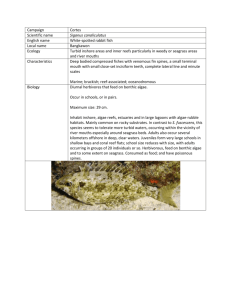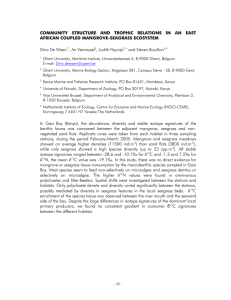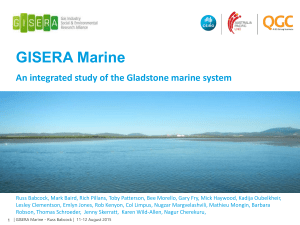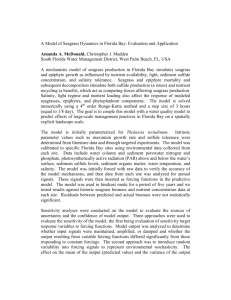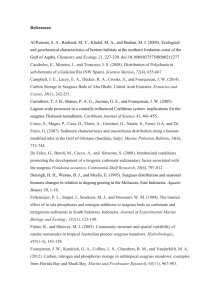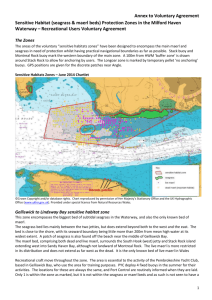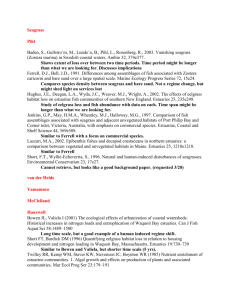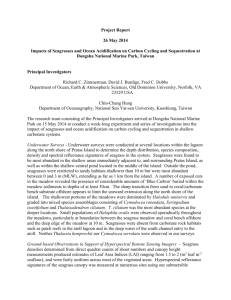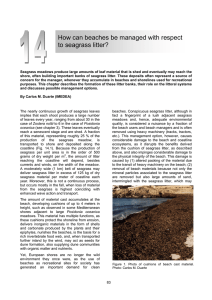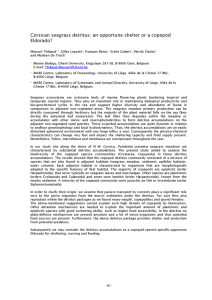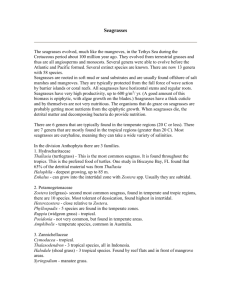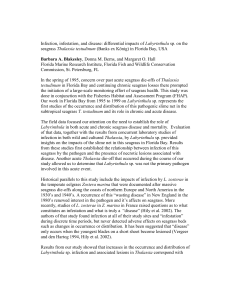SEAGRASS & SEAWEED
advertisement
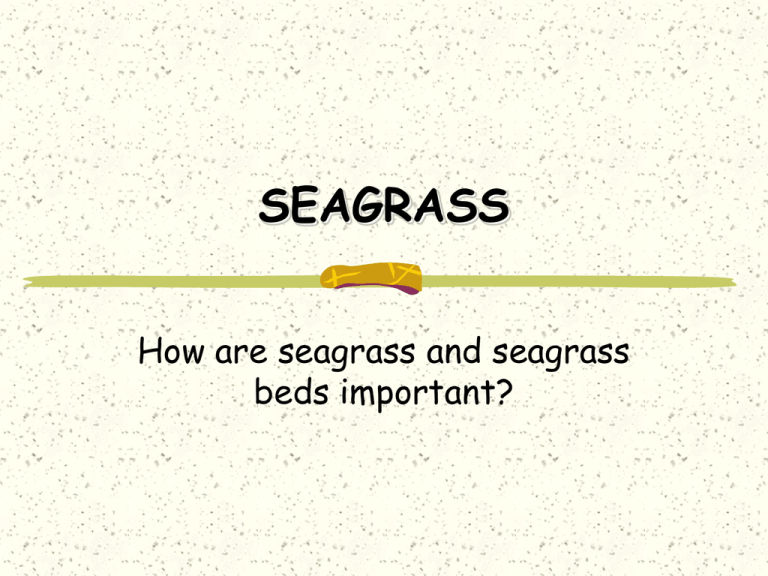
SEAGRASS How are seagrass and seagrass beds important? WHAT IS A SEAGRASS? Marine plant Angiosperm = true flowering plant Vascular tissues (phloem & xylem) Benthic (bottom dweller) Found in shallow coastal water where there is lots of sunlight Flowers are pollinated underwater except for one species STRUCTURE OF SEAGRASS Rhizomes – rootlike, buried in sand that take up nutrients and anchor plant to substrate Nodes Internodes Shoots Leafs – need light for photosynthesis Flowers PARTS OF A SEAGRASS PLANT SEAGRASS & CORAL REEFS Provide habitat, shelter, and nursery for wide variety of animals and plants Improve water quality by removing nutrients from the water Roots stabilize and hold bottom sediment Leaves slow down currents and allows sediment to settle Food for marine organisms (primary producers) Produce and trap ditritus (dead organism) HUMAN USES OF SEAGRASS House insulation made of dried seagrass Soundproof radio studios Roofing thatch Package stuffing Stock feed Fertilizers for land plants HARMS TO SEAGRASSES: Dredging Removes seagrass Creates muddied water that reduces amount of sunlight Silt can smother and suffocate seagrass beds and other organisms in the area Nutrients from sewage, fertilizer runoffs from farm areas, soil eroding from land Boating WHAT CAN WE DO TO PROTECT SEAGRASS? Be careful of how we treat the land Land use management Practice environmentally friendly farming techniques and method Control deforestation Volunteer in seagrass monitoring program Educate or remind boaters of the following: Keep out of seagrass areas during low tides If you must pass through seagrass areas when boating, go slow Anchor away from seagrass beds Reduce amount of pollution entering bays and estuaries by doing the following: Be careful of what you dump in the drain Establish buffer zones Reduce amount of pesticide and fertilizers used on lawns and farms Reduce storm water runoffs into bays Build environmentally friendly septic tanks near coastal waters
